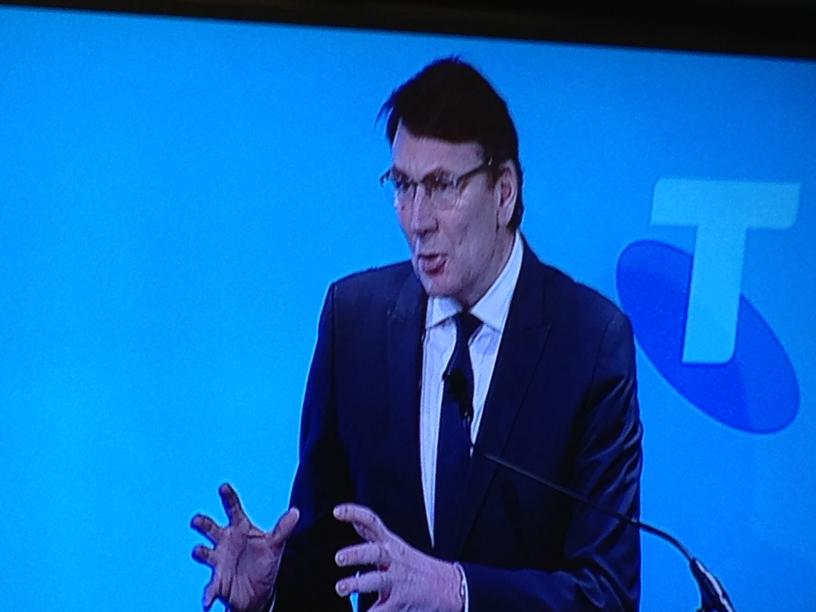Telstra not sold on Optus and Vodafone's bill shock killers

Recent moves by Optus and Vodafone to tackle excess data usage charges and high global roaming bills have yet to win over Telstra, according to CEO David Thodey.
In June, as part of a recent streak of Australian telcos engaging in a mea culpa for their bad ways, reaping money from customers who accidentally go over their monthly limits, Optus announced a new range of plans wherein customers who go over their monthly data limit will be charged an additional AU$10 per gigabyte used in that month. Telstra, by comparison, currently charges AU$102.40 per extra gigabyte used if the customer has not bought an additional data pack.
Then, late last month, Vodafone announced that customers on select plans who travel to the US, the UK, or New Zealand would be able to continue using their mobile phone as normal, with just an additional AU$5 daily charge. The move sparked speculation that the other carriers would have to follow suit, with massive global roaming charges in Australia being one of the issues the Telecommunications Industry Ombudsman highlighted as needing to be addressed by the industry.
Telstra yesterday announced that it has added another 1.3 million new mobile customers to its network, bringing its total customer base to a massive 15.1 million, almost higher than Optus and Vodafone combined. Being the largest player in the market, Thodey said that Telstra may not seek to match what its competitors are offering.
"We manage the excess data usage very closely. It's a fine balance you've got to get, because excess data usage might be good for revenue, but it really annoys customers, and you get bill shock and all those sorts of things," he said.
"I'm not so driven by what others say. I'm more driven by what we do for our customers and what is right for us. I think we've got a pretty good feel on that. I'm not inclined to talk about what we're going to do next month, but I can tell you we know very intimately whatever is going on in the market and we respond."
Thodey said Telstra will always remain competitive on pricing, but this doesn't mean racing to the bottom on price.
"I'm not going to go back to where we were five years ago, with 40 percent premiums, [but we will] sell the differentiation of a network that is 2.2 million square kilometres with a competitor that has a network that is half of the size of our network," he said.
"Let's keep that in perspective when we're talking about network strength."
One option that Telstra had been considering to differentiate itself in the market on price was to launch a Jetstar-like budget telco under the Adam Internet branding that the company attempted to acquire late last year. That deal fell through at the end of June, and iiNet quickly stepped up to the plate to acquire the company in a matter of weeks.
Thodey said yesterday that Telstra was disappointed the Adam deal didn't work out, but said that the company is assessing its options for an alternative.
"We're disappointed it didn't go ahead; took too long; time kills deals. It was most unfortunate. We're looking at our options now, we still think there is an opportunity for something, but we're just going back and re-looking at things," he said.
The move to a budget brand could be one way to address a slowing mobile sector. The three-year trend shows Telstra's growth rate in the mobile space is now beginning to slow, but Thodey said that he still sees room for growth in the sector.
"I've been surprised. We've been looking at the mobiles business very closely, [and] demand is still strong," he said.
"[There is] a little bit more competition, but I don't think that necessarily means we can't continue to grow."
